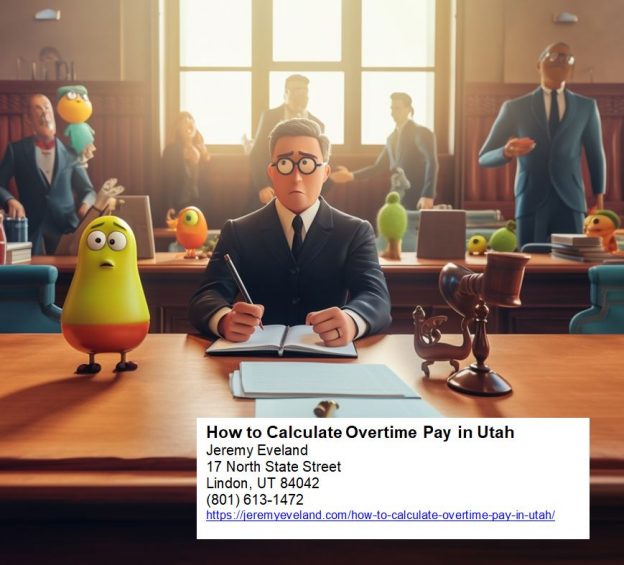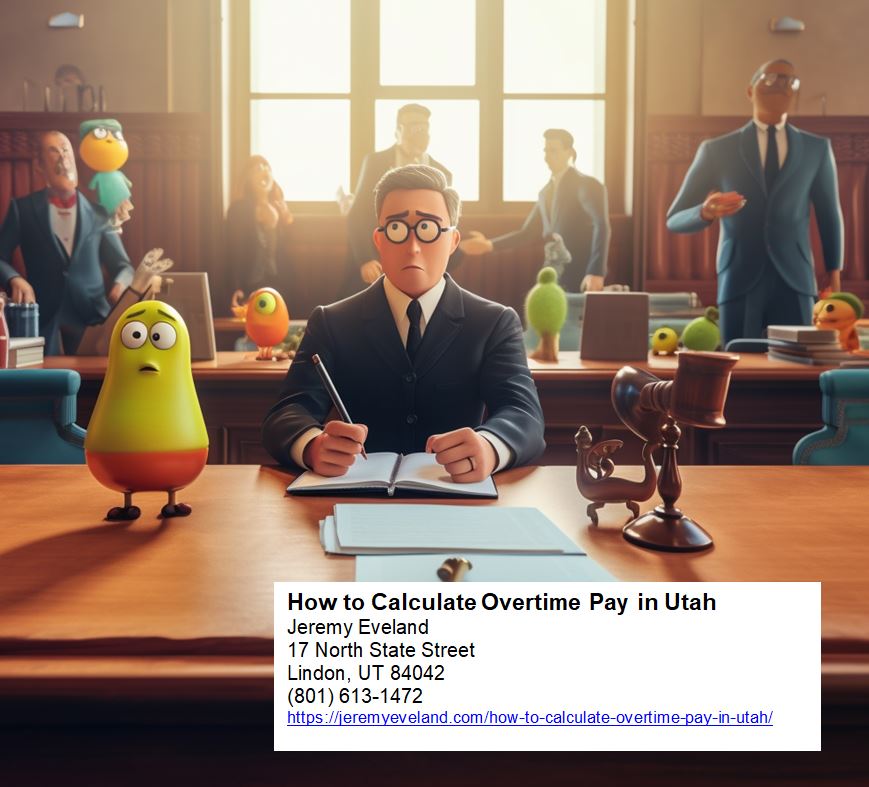Imagine you’re driving on a blissful sunny day, enjoying your favorite tunes when suddenly, out of nowhere, a car collides with yours. The rush of adrenaline subsides as the reality sinks in – you’ve been involved in a car accident. Panic sets in as you start to worry about the financial implications this may have on your daily life. Will you lose your wages? Can a lawyer help you in this situation? In this article, we will explore the possibility of a lawyer taking your wages in a car accident and shed light on the steps you can take to protect your financial well-being. Strap in as we navigate through the intricacies of this often overlooked aspect of car accident claims.

Understanding Personal Injury Cases
What is a personal injury case?
A personal injury case refers to a legal dispute that arises when an individual suffers harm or injury due to the negligence or intentional actions of another party. Personal injury cases are often the result of accidents, such as car accidents, slip and falls, or medical malpractice incidents. In such cases, the injured person may be entitled to compensation for their injuries, medical expenses, pain and suffering, and other related damages.
When to hire a personal injury lawyer
While it is not always necessary to hire a personal injury lawyer for every case, it is highly recommended to seek legal representation, especially in complex or severe injury cases. Here are a few instances where hiring a personal injury lawyer is advisable:
-
Serious injuries: If you have sustained severe injuries that require extensive medical treatment, rehabilitation, or long-term care, it is crucial to have an experienced personal injury lawyer by your side. They will ensure that you receive the maximum compensation you deserve.
-
Liability disputes: In cases where the fault or liability is disputed, having a skilled personal injury lawyer can help you gather evidence, interview witnesses, and build a strong case in your favor.
-
Insurance company tactics: Insurance companies often employ tactics to minimize the amount they have to pay for a claim. A personal injury lawyer can handle all communication with the insurance company, negotiate on your behalf, and ensure that your rights are protected.
-
Legal complexities: Personal injury laws can be complex, varying from state to state. An experienced lawyer will have a comprehensive understanding of the laws and regulations relevant to your case, ensuring that all legal procedures are followed correctly.
Seeking legal advice from a personal injury lawyer can provide you with the necessary guidance and support during the legal process, increasing your chances of a favorable outcome.
Determining Liability in Car Accidents
Proving negligence in car accidents
Proving negligence in car accident cases is crucial for determining liability. In order to establish negligence, the following elements must be demonstrated:
-
Duty of care: It must be shown that the at-fault party owed a duty of care to the injured party. In the case of car accidents, all drivers have a duty to operate their vehicles safely and abide by traffic laws.
-
Breach of duty: It must be proven that the at-fault party breached their duty of care by acting negligently or recklessly. This can include actions such as speeding, running a red light, or driving under the influence.
-
Causation: It must be established that the breach of duty directly caused the accident and subsequent injuries. This often requires gathering evidence such as witness testimonies, police reports, and medical records.
-
Damages: Finally, it must be demonstrated that the injured party suffered damages as a result of the accident. This can include physical injuries, medical expenses, property damage, lost wages, and pain and suffering.
Proving negligence can be complex and requires a thorough investigation of the accident. It is recommended to seek the assistance of a qualified personal injury lawyer who can gather evidence, consult with experts, and build a strong case on your behalf.
Types of damages in car accident cases
Car accident victims may be entitled to various types of damages, depending on the specific circumstances of their case. Some common types of damages awarded in car accident cases include:
-
Medical expenses: This includes reimbursement for all medical treatments, surgeries, hospital stays, medication, rehabilitation, and future medical expenses related to the accident.
-
Property damage: Compensation for the repair or replacement of the damaged vehicle or any other property affected by the accident.
-
Lost wages: If the victim is unable to work due to their injuries, they may be eligible for compensation for lost wages, including future earning potential.
-
Pain and suffering: This category of damages compensates the victim for physical pain, emotional distress, and psychological trauma caused by the accident and resulting injuries.
-
Loss of consortium: If the accident has had a significant impact on the victim’s relationships with their spouse, they may be entitled to compensation for the loss of love, companionship, or support.
-
Punitive damages: In cases where the at-fault party’s conduct was particularly reckless or intentional, punitive damages may be awarded to punish the wrongdoer and deter others from engaging in similar behavior.
It is important to note that the availability and calculation of damages can vary depending on the specific laws of the jurisdiction and the facts of the case. Consulting with an experienced personal injury lawyer will help ensure that you receive the appropriate compensation for your injuries and losses.
The Role of Lawyers in Car Accident Cases
How lawyers help in car accident cases
Personal injury lawyers play a vital role in car accident cases by providing legal representation to injured victims. Here are some ways in which lawyers assist their clients:
-
Legal advice and guidance: Personal injury lawyers have extensive knowledge and experience in handling car accident cases. They can provide valuable legal advice, explain your rights and options, and guide you through the legal process.
-
Investigation: Lawyers will conduct a thorough investigation of the accident, gathering evidence such as witness statements, police reports, photographs, and any available surveillance footage. This evidence will help establish liability and support your claim for compensation.
-
Negotiation: Lawyers are skilled negotiators who can engage in settlement discussions with insurance companies on your behalf. They will ensure that you are not taken advantage of and that any settlement offer fairly compensates you for your injuries and losses.
-
Court representation: If a fair settlement cannot be reached through negotiation, lawyers are prepared to take the case to court. They will gather and present evidence, cross-examine witnesses, and argue your case to the judge and jury.
-
Legal paperwork and documentation: Personal injury cases involve a significant amount of paperwork, including filing legal documents, submitting evidence, and complying with court deadlines. Lawyers will handle all of these tasks, ensuring that everything is submitted correctly and on time.
By enlisting the services of a personal injury lawyer, you can focus on your recovery while knowing that an experienced professional is advocating for your rights and fighting for the compensation you deserve.
Benefits of hiring a car accident lawyer
Hiring a car accident lawyer offers several benefits, including:
-
Increased chances of success: Personal injury lawyers have the knowledge, experience, and resources to build a strong case on your behalf. Their expertise in the legal field significantly improves your chances of obtaining a favorable outcome and maximum compensation.
-
Reduced stress: Dealing with a car accident and the subsequent legal process can be overwhelming, especially when you are recovering from injuries. Hiring a lawyer allows you to alleviate the stress of navigating the legal system, as they will handle all legal matters on your behalf.
-
Proper valuation of your claim: Determining the value of your claim can be challenging, especially when considering future medical expenses and long-term impact on your earning capacity. A car accident lawyer understands how to accurately assess the value of your claim, ensuring that you are not shortchanged by the insurance company.
-
Knowledge of the legal process: Personal injury cases involve complex legal procedures and timelines, which can be confusing for someone without legal experience. Lawyers have a deep understanding of these processes and will ensure that all necessary steps are followed correctly, avoiding any delays, errors, or missed opportunities.
-
Contingency fee arrangement: Most personal injury lawyers work on a contingency fee basis, which means that they only get paid if they successfully recover compensation on your behalf. This arrangement eliminates the financial burden of upfront legal fees and ensures that your lawyer is motivated to work diligently to obtain the best possible outcome for you.
Hiring a car accident lawyer is a wise decision that can greatly impact the outcome of your case. Their expertise, guidance, and dedication to your best interests provide peace of mind during a challenging time.
Contingency Fee Arrangements
What is a contingency fee?
A contingency fee is a payment arrangement commonly used in personal injury cases where the lawyer’s fee is contingent upon successfully recovering compensation for the client. Under a contingency fee agreement, the lawyer agrees to take on the case without requiring the client to pay any upfront fees or expenses. Instead, the lawyer’s fee is based on a percentage of the final settlement or court-awarded damages.
How do contingency fees work in car accident cases?
In car accident cases, a contingency fee arrangement allows injured victims to access legal representation without bearing any financial burden upfront. Here’s how the process typically works:
-
Initial consultation: The lawyer will provide a free initial consultation to evaluate the merits of your case. During this consultation, they will assess the likelihood of success, the potential value of your claim, and the overall complexity of the case.
-
Fee agreement: If the lawyer determines that your case has merit, they will offer a contingency fee agreement. This agreement will outline the percentage of the final settlement or court-awarded damages that the lawyer will receive as their fee. The typical contingency fee ranges between 33% and 40% of the total recovery.
-
No upfront fees: Once you have signed the contingency fee agreement, you will not be required to pay any attorney fees or expenses out of pocket. The lawyer will cover all costs associated with your case, including court fees, expert witness fees, and investigative expenses.
-
Payment upon recovery: If the lawyer successfully recovers compensation on your behalf, their fee will be deducted from the settlement or court-awarded damages. The remaining amount will be disbursed to you. If the case is not successful, you will not owe the lawyer any fees.
Contingency fee arrangements provide a risk-free option for individuals seeking legal representation in car accident cases. They allow injured victims to obtain skilled and experienced legal advocacy without worrying about the financial implications until their case is resolved.

Understanding Wage Garnishment
What is wage garnishment?
Wage garnishment is a legal process that allows a creditor to collect a debt by obtaining a court order to withhold a portion of an individual’s wages directly from their paycheck. When wage garnishment occurs, the employer is required by law to deduct the specified amount from the employee’s paycheck and send it to the creditor.
When can wages be garnished?
Wage garnishment can only occur under certain circumstances and is typically implemented as a last resort by creditors who have exhausted other collection methods. Some common reasons that may lead to wage garnishment include:
-
Unpaid debts: If you owe money to a creditor, such as credit card debt, medical bills, or student loans, and fail to make payments, the creditor may initiate wage garnishment to collect the outstanding balance.
-
Child support or alimony: When individuals do not fulfill their financial responsibilities towards child support or alimony, the court may order wage garnishment to ensure regular payments.
-
Judgments or legal orders: If you lose a lawsuit or have a judgment entered against you, the winning party may seek wage garnishment as a means of collecting the awarded damages.
It is important to note that there are legal limits on the amount of wages that can be garnished, and certain types of income, such as Social Security benefits, are generally protected from garnishment.
Wage Garnishment Laws in Utah
Utah laws regarding wage garnishment
In Utah, state law sets limits on the amount of wages that can be garnished. The following rules apply:
-
Consumer debts: For consumer debts, such as credit cards and medical bills, the maximum amount that can be garnished is 25% of the disposable earnings or the amount by which the disposable earnings exceed 30 times the federal minimum wage, whichever is less.
-
Support and maintenance orders: When it comes to child support or alimony, the maximum amount that can be garnished is 55% of the disposable earnings if the debtor is supporting a second family and 50% if the debtor is not supporting a second family.
-
Student loans: For defaulted student loans, the Department of Education can garnish up to 15% of disposable income, but not more than 30 times the minimum wage.
It is important to consult with a knowledgeable attorney to understand how Utah’s specific wage garnishment laws may apply to your situation.
Protection from excessive wage garnishment
In certain cases, individuals may be protected from excessive wage garnishment through various legal mechanisms. Here are a few examples:
-
Bankruptcy: Filing for bankruptcy can provide relief from wage garnishment. Both Chapter 7 and Chapter 13 bankruptcy have provisions that can halt or reduce wage garnishment.
-
Hardship exemptions: If you can demonstrate that the wage garnishment is causing financial hardship for you and your dependents, you may be eligible for a hardship exemption. This exemption can reduce or eliminate wage garnishment in specific circumstances.
-
Negotiated agreements: In some cases, it may be possible to negotiate an alternative arrangement with the creditor or work out a repayment plan that avoids wage garnishment.
To determine the best course of action to protect your wages from garnishment, it is essential to consult with an experienced lawyer who can evaluate your specific circumstances and advise you on the most appropriate legal strategies.
Possible Scenarios Involving Wages and Car Accidents
Scenario 1: Outstanding medical bills
In the aftermath of a car accident, it is not uncommon to accumulate substantial medical bills. If you were injured in the accident and have outstanding medical bills that you are unable to pay, your creditors may pursue wage garnishment to collect the debt.
In such cases, it is crucial to consult with a personal injury lawyer as soon as possible. An experienced lawyer can help you navigate through the legal process, negotiate with creditors, and seek compensation for your medical expenses through a personal injury claim. By taking swift action, you may be able to prevent or minimize the impact of wage garnishment on your finances.
Scenario 2: Loss of income and diminished earning capacity
Car accidents can result in severe injuries that may prevent you from working temporarily or permanently. If you have suffered a loss of income or diminished earning capacity due to the accident, a personal injury lawyer can assist you in recovering lost wages through a personal injury claim.
Calculating lost wages can be complex, as it requires assessing your pre-accident earnings, potential future earnings, and any other financial losses resulting from the accident. A skilled lawyer will consider various factors, such as your occupation, education, skill set, and the impact of your injuries on your ability to work, to determine an accurate value for your lost wages.
By pursuing a personal injury claim, you can seek compensation for the income you have already lost and the potential future earnings you may have been able to earn if not for the accident. This can provide financial stability and cover your immediate and long-term financial needs.
Recovering Lost Wages After a Car Accident
Types of damages that may include lost wages
In a personal injury claim arising from a car accident, lost wages are considered an economic damage and fall under the category of compensatory damages. Compensatory damages aim to reimburse the injured party for the various losses suffered as a result of the accident.
Lost wages can include:
-
Current lost wages: If your injuries prevent you from working immediately following the accident, you may be entitled to compensation for the wages you would have earned during that period.
-
Future lost wages: If your injuries have a long-term impact on your ability to work, you may seek compensation for the potential future earnings you would have received if not for the accident. This can include diminished earning capacity or the loss of career advancement opportunities.
-
Benefits and bonuses: Compensation for lost wages may also include any additional benefits or bonuses you would have received had the accident not occurred, such as commissions, pension contributions, or stock options.
By pursuing a personal injury claim with the help of a skilled lawyer, you can ensure that all relevant aspects of lost wages are considered and included in your compensation.
Proving lost wages in a personal injury claim
To prove lost wages in a personal injury claim, it is essential to gather the necessary documentation and evidence that demonstrate the impact of the accident on your earning capacity. Here are some key steps in proving lost wages:
-
Employment records: Collect your employment records, including pay stubs, tax returns, and any other relevant documents that provide evidence of your income prior to the accident.
-
Medical records: Obtain medical records that detail the extent of your injuries, the treatment you received, and any restrictions or limitations on your ability to work. These records will help establish a direct link between your injuries and the loss of income.
-
Expert opinions: Depending on the complexity of your case, consulting with vocational experts or economists may be necessary to evaluate your potential future earnings and assess the impact of the accident on your earning capacity.
-
Documentation of missed work: Keep track of the dates and hours you were unable to work due to the accident and injuries. This can include medical appointments, hospital stays, and any other missed workdays directly related to the accident.
By collecting and organizing this evidence, your personal injury lawyer can present a strong case demonstrating the financial impact of the accident on your income and increase your chances of obtaining fair compensation for lost wages.

How Lawyers Get Paid in Car Accident Cases
Methods of attorney compensation
Lawyers handling car accident cases typically use one of the following methods of attorney compensation:
-
Contingency fee: As mentioned earlier, the most common method of attorney compensation in personal injury cases is the contingency fee arrangement. Under this arrangement, the lawyer’s fee is a percentage of the final settlement or court-awarded damages. The advantage of a contingency fee is that the client does not have to pay any fees upfront, and the lawyer is only paid if they successfully recover compensation on the client’s behalf.
-
Hourly rate: In some cases, particularly if the case involves complex legal issues or is not likely to result in significant compensation, a lawyer may charge an hourly rate for their services. This means that the client will be billed for the number of hours the lawyer spent working on the case, regardless of the outcome.
-
Flat fee: In certain straightforward cases, such as simple contract reviews or document drafting, lawyers may charge a flat fee for their services. This means that the client pays a set amount for the specific legal service provided, regardless of the complexity or duration of the case.
It is important to discuss the attorney’s fee structure and billing practices during the initial consultation to ensure that you have a clear understanding of how you will be charged for their services.
How lawyers recover their fees
When lawyers are successful in recovering compensation for their clients, they will typically recover their fees from the settlement or court-awarded damages. Once the settlement amount is received, the lawyer’s fee, as outlined in the contingency fee agreement, will be deducted and disbursed to the lawyer.
It is important to note that lawyers may also deduct any case-related expenses, such as court filing fees, expert witness fees, or investigation costs, from the client’s portion of the settlement. These expenses are typically outlined in the contingency fee agreement and should be discussed and clarified before the case commences.
It is recommended to have a detailed discussion with your lawyer regarding their fee structure and expenses, ensuring that you have a clear understanding of how their fees will be recovered and any additional charges that may arise during the legal process.
Frequently Asked Questions
Can a lawyer take all of my wages after a car accident?
No, a lawyer cannot take all of your wages after a car accident. They are bound by ethical and legal obligations and can only collect their fee as outlined in the contingency fee agreement. The lawyer’s fee is typically a percentage of the final settlement or court-awarded damages, and they are not entitled to take your entire wages.
Can I recover lost wages if I was at fault in the accident?
Even if you were partially at fault for the accident, you may still be able to recover lost wages. Many states follow a comparative negligence rule, which means that you can still seek compensation for your damages, including lost wages, as long as the other party involved in the accident bears a greater percentage of fault. It is recommended to consult with a personal injury lawyer who can evaluate your case and determine the potential for recovering lost wages.
What if my employer refuses to cooperate with a wage garnishment order?
If your employer refuses to cooperate with a valid wage garnishment order, they may face legal consequences. It is advisable to consult with an attorney who can provide guidance on the appropriate steps to take in such a situation.
Can I change lawyers if I’m not satisfied with my current representation?
Yes, you have the right to change lawyers if you are not satisfied with your current representation. It is essential to communicate your concerns with your current lawyer before making a final decision. If you decide to switch lawyers, ensure that you properly terminate the attorney-client relationship and seek the services of a new lawyer who can take over your case.
Is it necessary to hire a lawyer for a car accident case?
While it is not always necessary to hire a lawyer for every car accident case, it is highly recommended, particularly in cases involving severe injuries or complexities. A personal injury lawyer can provide valuable legal advice, protect your rights, gather evidence, negotiate with insurance companies, and ensure that you receive the maximum compensation you deserve. Hiring a lawyer increases your chances of a favorable outcome and enables you to focus on your recovery while leaving the legal matters in capable hands.











